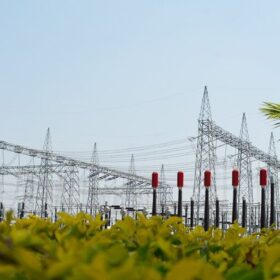Decarbonizing industrial energy use: The business case for real-time ESG monitoring
Decarbonizing energy use in industry is a core part of India’s sustainable development agenda. Real-time ESG monitoring is a powerful approach to achieve this goal, with advantages that go beyond environmental compliance to operational excellence and competitive advantage.
Turning climate commitments into competitive advantages: How businesses can benefit from sustainability
The best businesses aren’t just adapting to the changing landscape; they’re leveraging sustainability to drive innovation, reduce costs, and build stronger relationships with their customers and stakeholders. Business leaders are turning sustainability into a growth driver rather than a cost center by adopting the right practices.
The role of ESG SaaS platforms in accelerating the energy transition
Leveraging artificial intelligence, automation, and real-time data, ESG SaaS (software-as-a-service) systems enable companies to optimize energy use, enable and enhance transparency, and comply with regulatory requirements.
Marico now meets 67% of its energy requirement through renewable sources
The FMCG major aims to achieve net-zero operational emissions in India (across owned manufacturing units) by 2030 and in global operations by 2040.
Only 7% of Indian companies with net-zero targets hail from high-emission sectors: ICRA ESG Ratings
The ICRA report states that the 127 companies committing to net zero target through science-based target initiative (SBTi) are primarily from non-hard-to-abate sectors like textiles, software, and pharmaceuticals.
Will COP29 push the world toward real climate action?
As the world looks to COP29, the stakes have never been higher. Climate finance, energy transitions, biodiversity, adaptation, and carbon markets—each of these issues represents a critical piece of the puzzle in the fight against climate change. Azerbaijan, as host, faces the daunting challenge of balancing competing interests while pushing for ambitious global action.
ESG reporting standard in India requires holistic approach to build global comparability
ESG (environmental, social, and governance) measurement is often inconsistent, as there are multiple ESG rating agencies, sustainability reporting standards and data providers and all deploy their own methodologies and parameters. That makes it challenging for the investors and other stakeholders to evaluate critical ESG metrics and make well-informed choices.
With energy transition we see strong growth in power and transmission sector: Vedanta Aluminium CEO
John Slaven, chief executive officer, Vedanta Aluminium, sees strong growth in demand from power & transmission and automotive sector with India’s focus on energy transition.
Adani Energy Solutions raises $1 billion via QIP route
Adani Energy Solutions Ltd will utilize the proceeds for building the bulk evacuation corridors for renewable power, smart metering business, debt repayment, and general corporate purposes.
Future-proofing utilities: Strategies for navigating technological disruption in India
The adoption of smart technologies is reshaping the utilities industry, with a particular focus on smart grids. Smart grids leverage advanced sensors, Internet of Things (IoT) devices, and real-time data analytics to transform how electricity is generated, distributed, and consumed.














